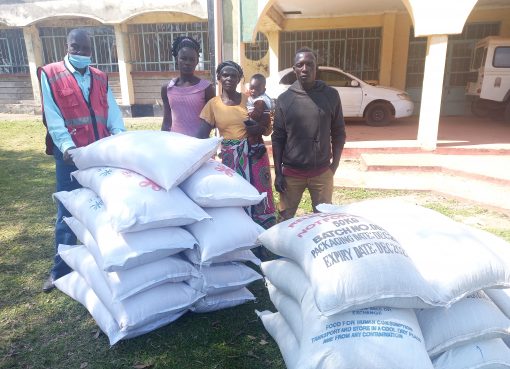The Cooperative movement has expressed fears that deduction of the 1.5 per cent housing levy as proposed in the Finance Act 2023 may negatively affect loan uptake and savings mobilization of their members.
Sacco leaders warned that loan default rate is likely to increase in the subsector going forward as the same will be affected by decreasing monthly savings.
Speaking during a meeting organized by the Cooperative Alliance of Kenya (CAK) the Harambee Sacco Chief Executive Officer Dr. George Ochiri said the introduction of the 1.5 per cent housing levy deduction will affect their salaries and thus savings will equally be affected.
“Even though the Government insists on tax mobilization to fund its programs, eventually the strategy will have a huge impact in the Sacco sub sector as savers are likely to reduce their deposits in order to manage their daily obligations,” he said.
Dr Ochiri raised the red flag that “If shareholders’ financial bases are affected, Saccos are likely to be faced with an exodus of the members moving to other outlets.”
He explained that the changing regulatory framework at the moment which comes into effect in July might see most members whose pay slips are already at a third or less take home salary default on their loans or equally opt to leave the SACCOs just to survive .
An employer is permitted to make deductions from an employee’s salary provided the employee takes home not less than a third of his salary (Section 19:3 of the Employment Act, 2007).24 Jun 2023
Dr. Ochiri said that once savings are affected this will interrupt borrowing capacity and thus deny Saccos fees earned out of the advances.
“This will interrupt the financial base of the SACCOs and in the long run might affect other business segments of the credit unions. And equally force them to reduce employment and investments,” he added.
When loans go down, incomes will go down, and dividends will also nose dive so will the interest on the taxman, he said noting that the only remedy would be asking their members to channel their salaries through Front Office Service Activity (FOSA)
Cooperative Alliance of Kenya (CAK) chief executive officer Daniel Marube said with the addition of tax deductions on members’ salaries eventually cut on savings and in long terms affect loan uptake.
“We equally expect changes on membership as in some cases members will exit to cope with the financial implication,” said Marube adding that at least there might be a reprieve for the government employees who will soon have a salary increments.

He acknowledged that despite the finance bill touching on various measures it is important for the Sacco leadership to sensitize its staff members on how they can be able to accommodate the changes as well as how the cooperative Sacco’s can assist their members to transit.
Although it is our duty to pay the rightful taxes to the government in order to build our country. It is necessary for the leaders to have same knowledge and walk in the same direction that the government has taken and that is why we invited an expert to break down the bill for us”, he said
Marube said it was critical for SACCO leadership to stay ahead on technology to keep tabs on shared services in order to minimize individual costs in the wake of cyber related crime.
He said “ technology dynamics were rapid and expensive as SACCOs spent millions to acquire and upgrade systems but shared services was the way to cut such expenditure and going forward we want to build Cooptech, a tertiary institution to provide first class technology to be shared to increase efficiency and reduce costs”.
Mr. Geoffrey C. Sigei from the Kenya Revenue Authority explained that the special law for the taxation of Co-operatives takes into account two main features and that is, it is a body corporate having its own existence and that it generates much of its income from transactions with its own members.
This however excludes a society which has been exempted from all the provisions of the Co-operatives Societies Act under section 92 of that Act; or a society in respect of which the Commissioner is of opinion is a body corporate carrying on business for its own profit.
“Co-operative Societies are taxable on their income like other persons but dividends and bonuses paid or distributed to members are allowed as a deduction in computing the taxable income,” Sigei said.
He noted that Section 19 A of the Income Tax Act categorized into three parts namely designated primary Cooperatives, Designated Secondary Cooperatives and Credit and Saving Cooperative Societies.
The three day meeting whose theme was unpacking key roles of supervisory, audit committees and board of management for cooperative sustainability covered the framework for risk governance of Saccos, framework for taxation of SACCOs in the country and digital transformation to the cooperative movement.
By Wangari Ndirangu





